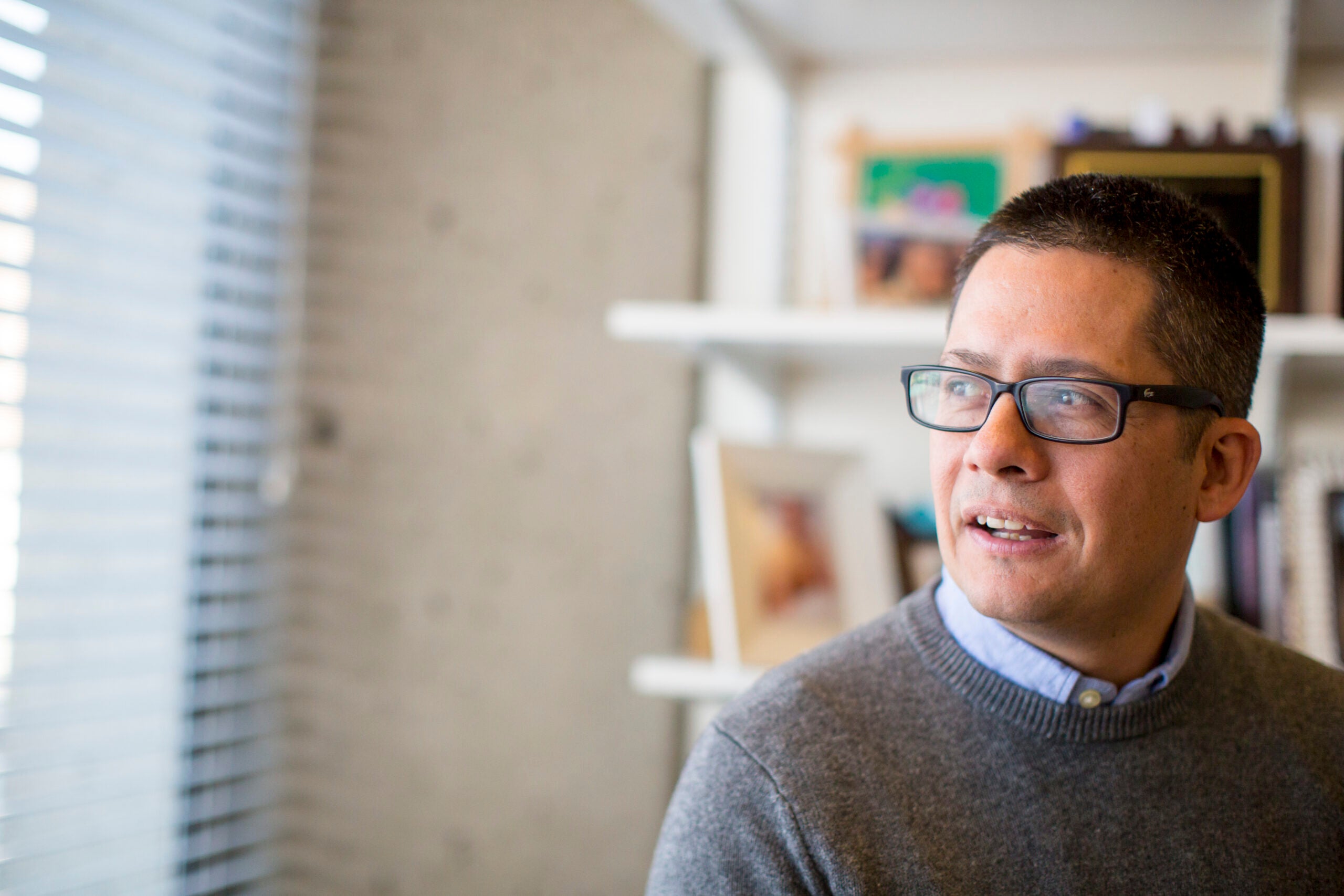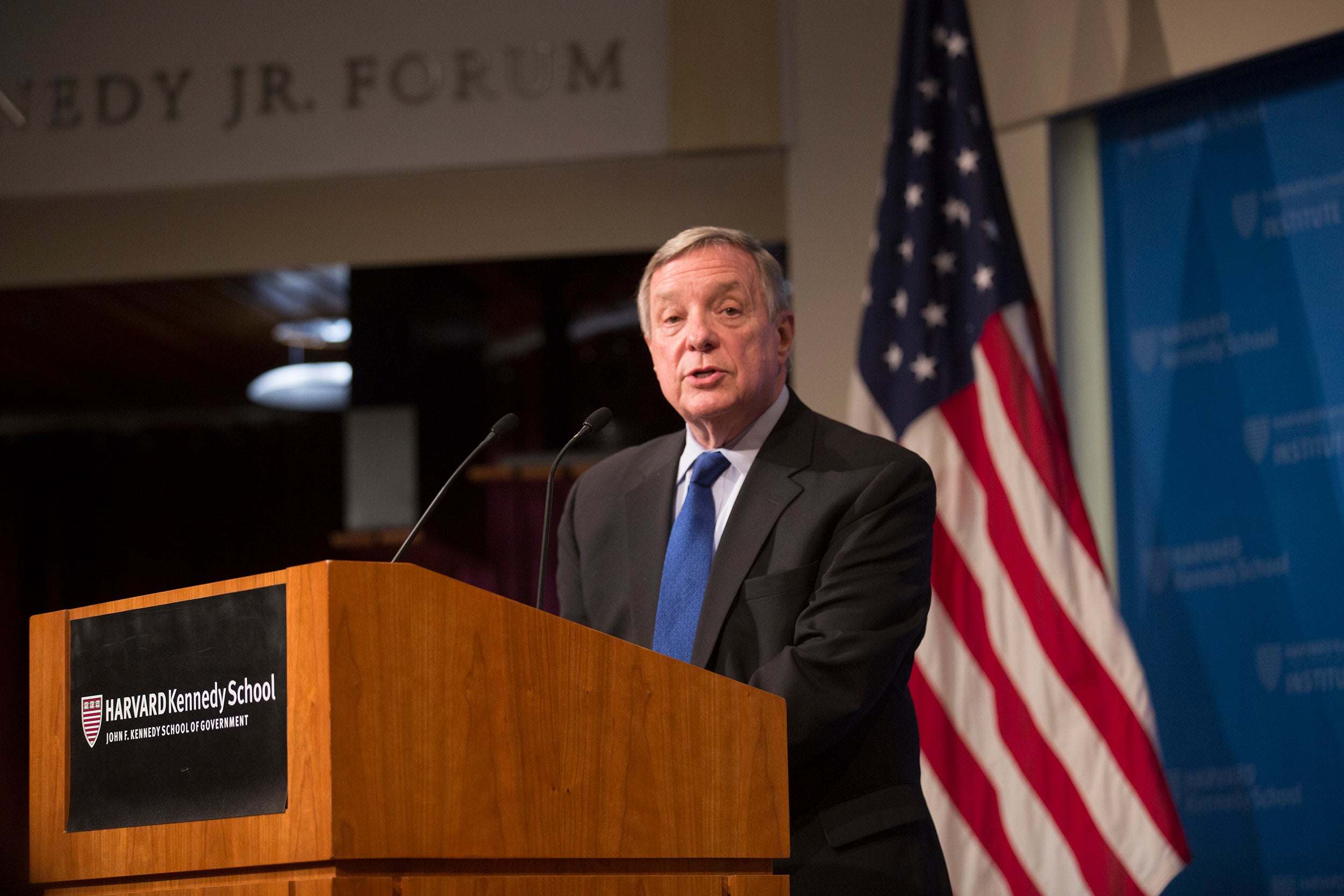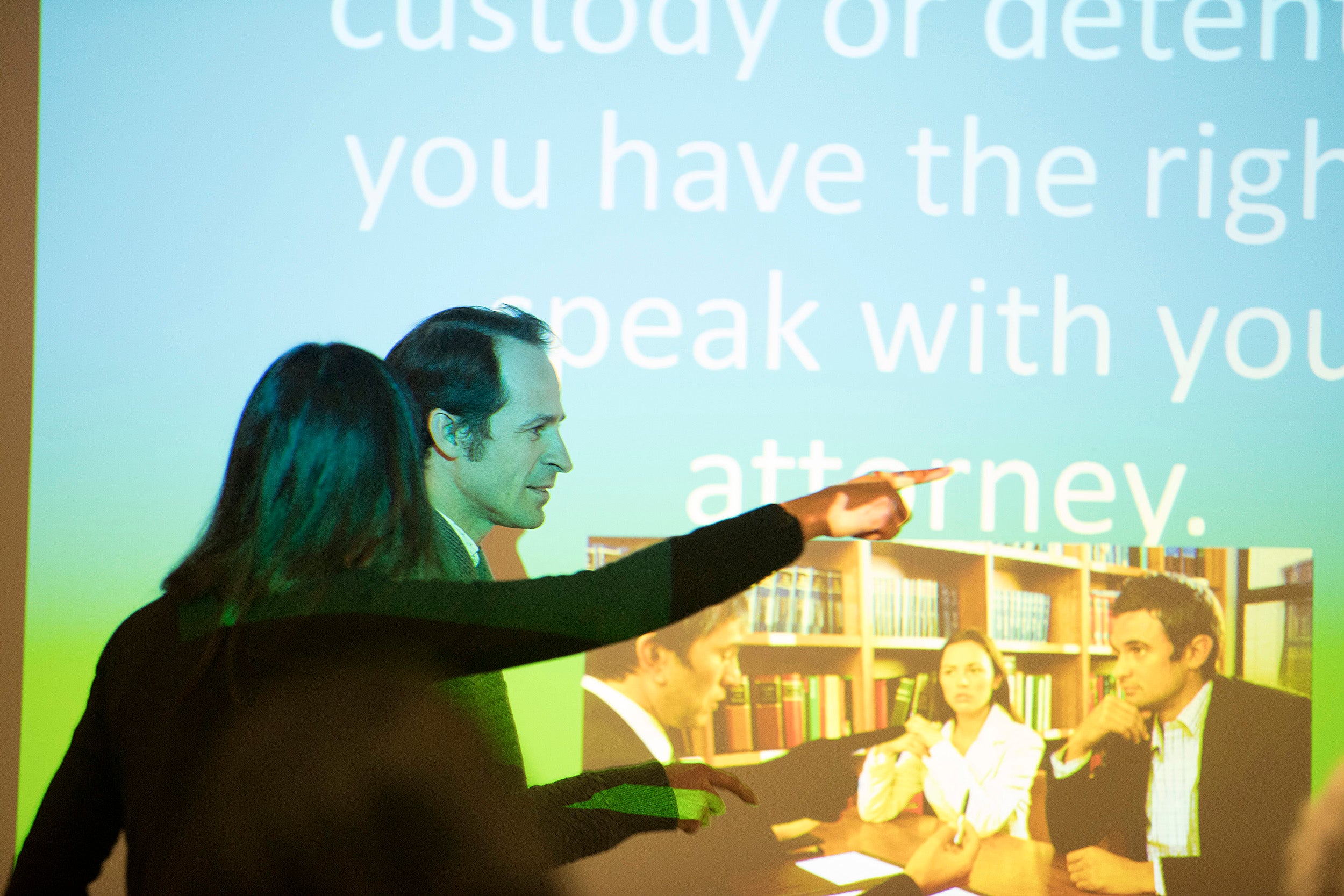
Jason Corral and Cindy Zapata of the Immigration and Refugee Clinic advised students of their legal rights during “A Day of Hope of Resistance,” part of a series of events exploring questions about the termination of DACA and TPS, deportations, and the current state of immigration policy.
Kris Snibbe/Harvard Staff Photographer
A celebration of immigration
With DACA in place for now, day’s events focus on protecting students, and on the artistry that other cultures bestow
Life for undocumented immigrants is full of risks. Any encounter with law-enforcement officials — on the sidewalk, while they are driving, or in their homes in the middle of the night — can lead to arrest and possible deportation.
But in all such cases, undocumented immigrants have rights. They have the right to remain silent, to refuse to consent to a search, and to decline to open the front door unless officials have a warrant.
At a workshop on immigrants’ rights held Monday morning at the Memorial Church, attorneys Jason Corral and Cindy Zapata of the Harvard Immigration & Refugee Clinical Program shared legal advice on how to deal with the more aggressive enforcement of immigration laws under the Trump administration. Corral has provided legal services to at least 60 undocumented students studying at Harvard.
“In this new day and age, any evidence you can provide, you can end up in removal proceedings,” said Corral.
The event was part of the DACA Seminar, a series of daylong events on campus to highlight, among other things, the future of the federal program known as Deferred Action for Childhood Arrivals (DACA), an Obama-era initiative that protects young immigrants from deportation.
Nearly 800,000 young immigrants have benefited from the program, but last September the Trump administration announced its end and set March 5 as a deadline for Congress to come up with a solution for those under its protections. But the deadline lost much of its meaning when the Supreme Court said that it would not rule on the administration’s plan to end the program. Federal district judges in New York and California had blocked the move to end DACA.
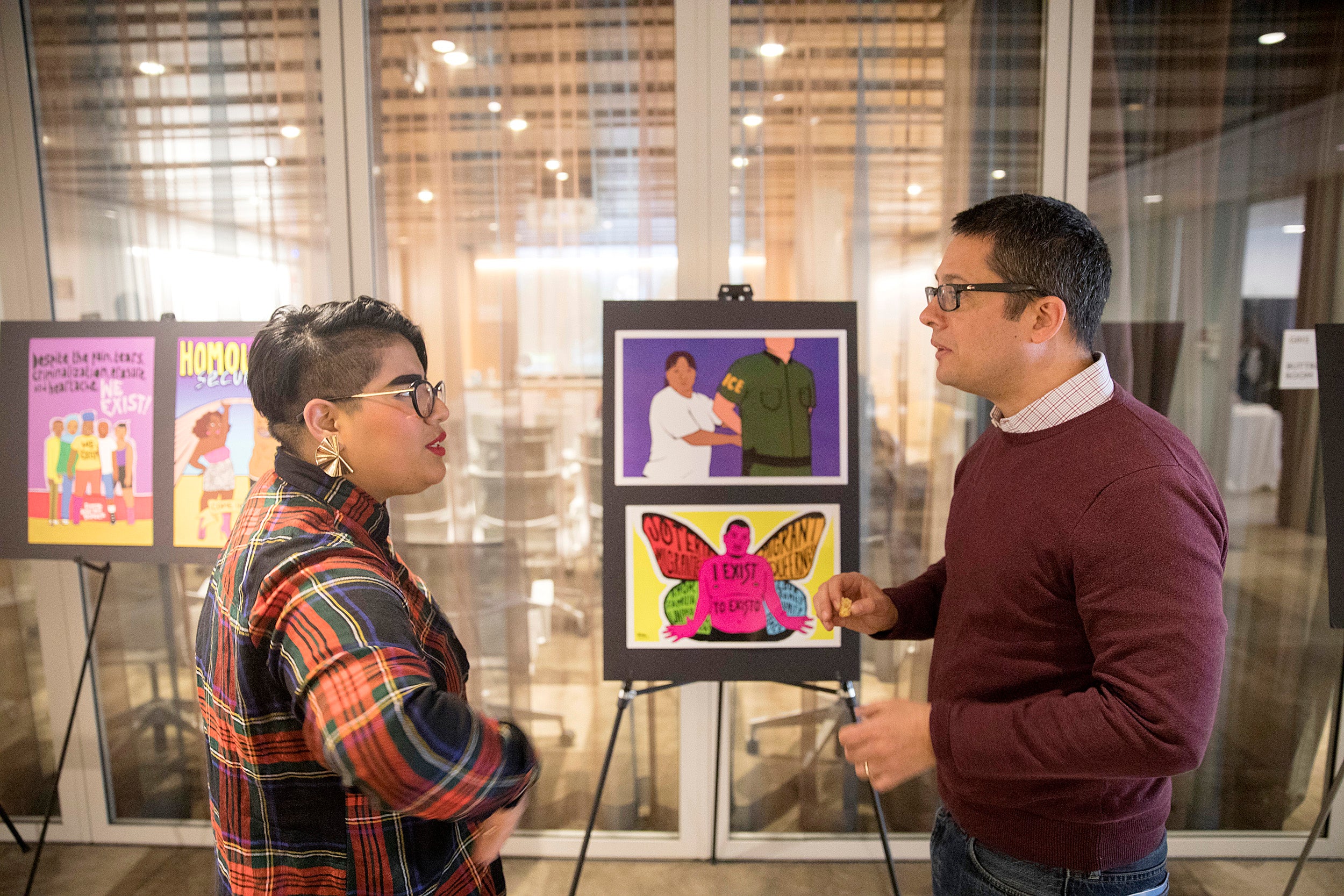
Creative Writing Workshop teacher Sonia Guiñansaca (left) and Professor of Education Roberto Gonzales view artwork by undocumented artist Julio Salgado (not pictured).
Kris Snibbe/Harvard Staff Photographer
This means that DACA recipients are living in limbo, said Kirsten Weld, the John L. Loeb Associate Professor of the Social Sciences, a historian of modern Latin America, and one of the organizers of the seminar.
“The overarching state of limbo in which DACA recipients have been living their whole lives continues,” said Weld. “We don’t know what’s going to happen. What we see going forward after March 5 is a continuation of the anxiety, uncertainty, and fear in which the immigrant community has been forced to live by this administration.”
To mark March 5, organizers of the DACA seminar held “A Day of Hope & Resistance,” an array of workshops and musical performances at the church capped by a four-hour concert featuring faculty members Esperanza Spalding, Vijay Iyer, and Claire Chase, along with Rebel Diaz, Quetzal, and other artists.
Some participants took part in a songwriting workshop and talks by community activists on the immigrant roots of hip-hop and the struggles of people incarcerated or in immigrant detention. The day’s purpose, said Weld, was to spark a conversation about all aspects of immigration.
Cindy Zapata speaks during the the “Know Your Rights” workshop where undocumented students were given a primer on their rights and how to protect themselves.
Kris Snibbe/Harvard Staff Photographer
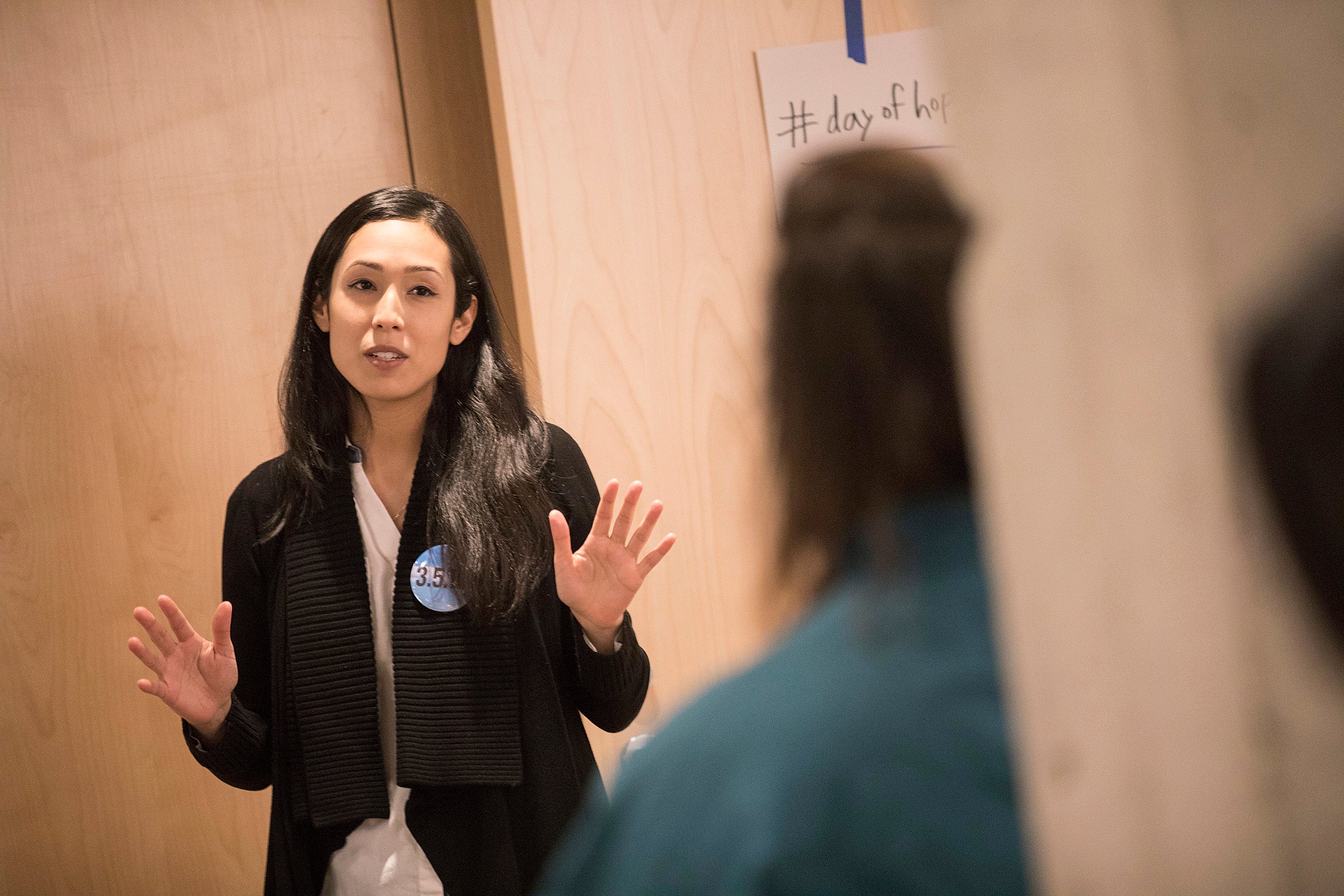
“Our goal was to create spaces and convene encounters that don’t usually happen on this campus, with the hope that from those encounters will emerge new forms of creative collaboration to challenge what’s being done to our communities,” said Weld. “Like the Uruguayan writer Eduardo Galeano said, ‘Every act of destruction, sooner or later, is met with an act of creation.’ We’re trying to meet an act of destruction with an act of creation.”
John Womack, Robert Woods Bliss Professor of Latin American History and Economics Emeritus, attended to support DACA students and their families.
“I think immigration policy in the United States is insane and unjust,” said Womack. “And so the least we can do is to show support for these people who were promised a certain status, at least for some time, so that they don’t get suddenly ditched.”



